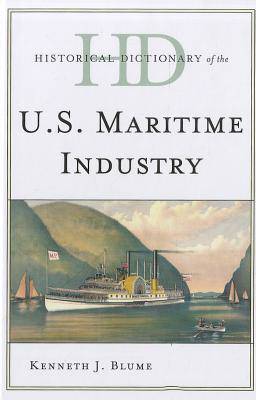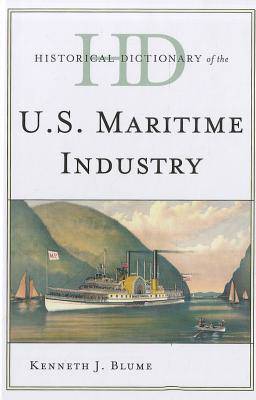
- Retrait gratuit dans votre magasin Club
- 7.000.000 titres dans notre catalogue
- Payer en toute sécurité
- Toujours un magasin près de chez vous
- Retrait gratuit dans votre magasin Club
- 7.000.0000 titres dans notre catalogue
- Payer en toute sécurité
- Toujours un magasin près de chez vous
Description
From the Spanish galleons of the 16th century to the cruise ships and crude oil tankers of the 21st, maritime industries have been central to American economic, political, and cultural life. Great American fortunes were built in the maritime industries and the workers in that industry--both the sailors on board the ships and the dockworkers at the port--contributed significantly to the nation's growing economy. The development of interior waterways, especially the canal system, paved the way for a transformation of inland North America. In the Historical Dictionary of the U.S. Maritime Industry, author Kenneth J. Blume provides a convenient survey of this important industry from the colonial period to the present day: from sail to steam to nuclear power. This concise new reference work captures the key features of overseas, coastal, lake, and river shipping and industry. An introduction provides an overview of the industry while the dictionary itself contains more than four hundred cross-referenced entries on ships, shipping companies, famous personalities, and major ports. A number of appendixes, including statistics on foreign trade, maritime disasters, famous ships, and major ports, supplement the dictionary, and a comprehensive bibliography leads the researcher to further sources. This book is an excellent access point for students, researchers, and anyone wanting to know more about the maritime industry in the United States.
Spécifications
Parties prenantes
- Auteur(s) :
- Editeur:
Contenu
- Nombre de pages :
- 612
- Langue:
- Anglais
- Collection :
Caractéristiques
- EAN:
- 9780810856349
- Date de parution :
- 22-12-11
- Format:
- Livre relié
- Format numérique:
- Genaaid
- Dimensions :
- 155 mm x 229 mm
- Poids :
- 975 g

Les avis
Nous publions uniquement les avis qui respectent les conditions requises. Consultez nos conditions pour les avis.






